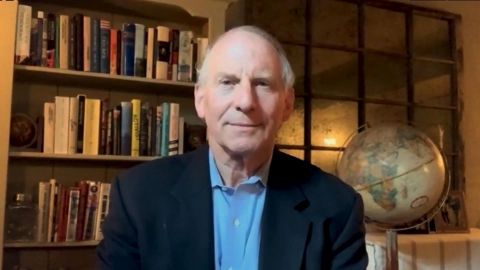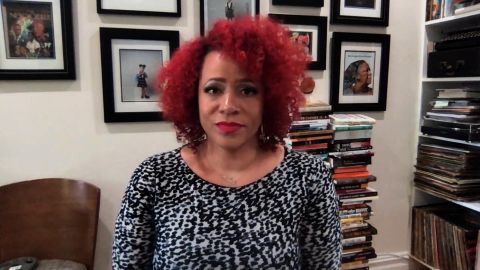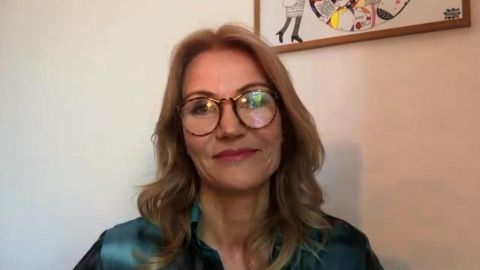Read Transcript EXPAND
NIKOLE HANNAH-JONES: Sure. So, we know that when this country was founded on these great ideals of universal rights and freedom, one-fifth of the population lived in absolute bondage and the black population was enslaved. We also know that at that period the majority of people who lived in America could not vote, which is the lynchpin of a democracy. Women could not vote. Black people could not vote. And native people couldn’t vote. And in fact, if you weren’t a white person who owned property you couldn’t vote. But black people actually saw those words, those founding majestic ideals and fought from the revolutionary period really until now to expand the idea of democracy and universal rights for all Americans. When you look at the legacy of reconstruction, which is the period right after the civil war as well as a legacy of the civil rights movement, it was black people fighting for a broad expansion of rights for all marginalized groups, not just for black Americans but barring discrimination in American life, legal discrimination against gender, against nationality, against religion. But that’s really been the role that black Americans have played. When we look at what’s happening with COVID-19, it’s really unsurprising that black Americans are suffering the worst. Black people remain — so, the group of people who did not choose to come to the United States, a nation of immigrants with the exception of native people and black people, we are at the bottom of every indicator. We are the most segregated, we are the most likely to live next to environmental toxins that cause the comorbidities that lead COVID to be so deadly.
So, asthma, hypertension, diabetes. We have least access to quality health care. We have the highest rates of being uninsured. We are far more likely to be working in a public sector and service jobs that meant that black people could not shelter in place. We have least access to level 1 trauma centers to treat us when we get sick from these diseases. So, in every way that COVID would — that would cause you to be most exposed to COVID, to be become more sick by COVID and to then die from COVID, black people are overrepresented. And the interesting thing is, you know, when you look at the United States, what sets us apart from every western industrialized country that we like to compare ourselves to is that we have this stingiest social safety net. We don’t have universal health care. And 1 out of 10 black people in this country is uninsured. We have really divested in our public hospitals and our public institutions. And this is also because of the racial lens that America produces public policy. What the polling shows is the more support — excuse me, the larger numbers of black people perceived to benefit from a social support the lower the support becomes amongst white Americans. And so, when you look at the way that we differ from other countries, it’s largely because of our ongoing legacy of racism.
About This Episode EXPAND
Christiane speaks with co-chair of the Facebook Oversight Board Helle Thorning-Schmidt about moderating the company’s content. She also speaks with Nikole Hanna-Jones about her Pulitzer Prize-winning essay as part of the 1619 Project; and Anya Hindmarch about the handbags she is designing for frontline workers. Walter Isaacson speaks with Richard Haass about global cooperation.
LEARN MORE



